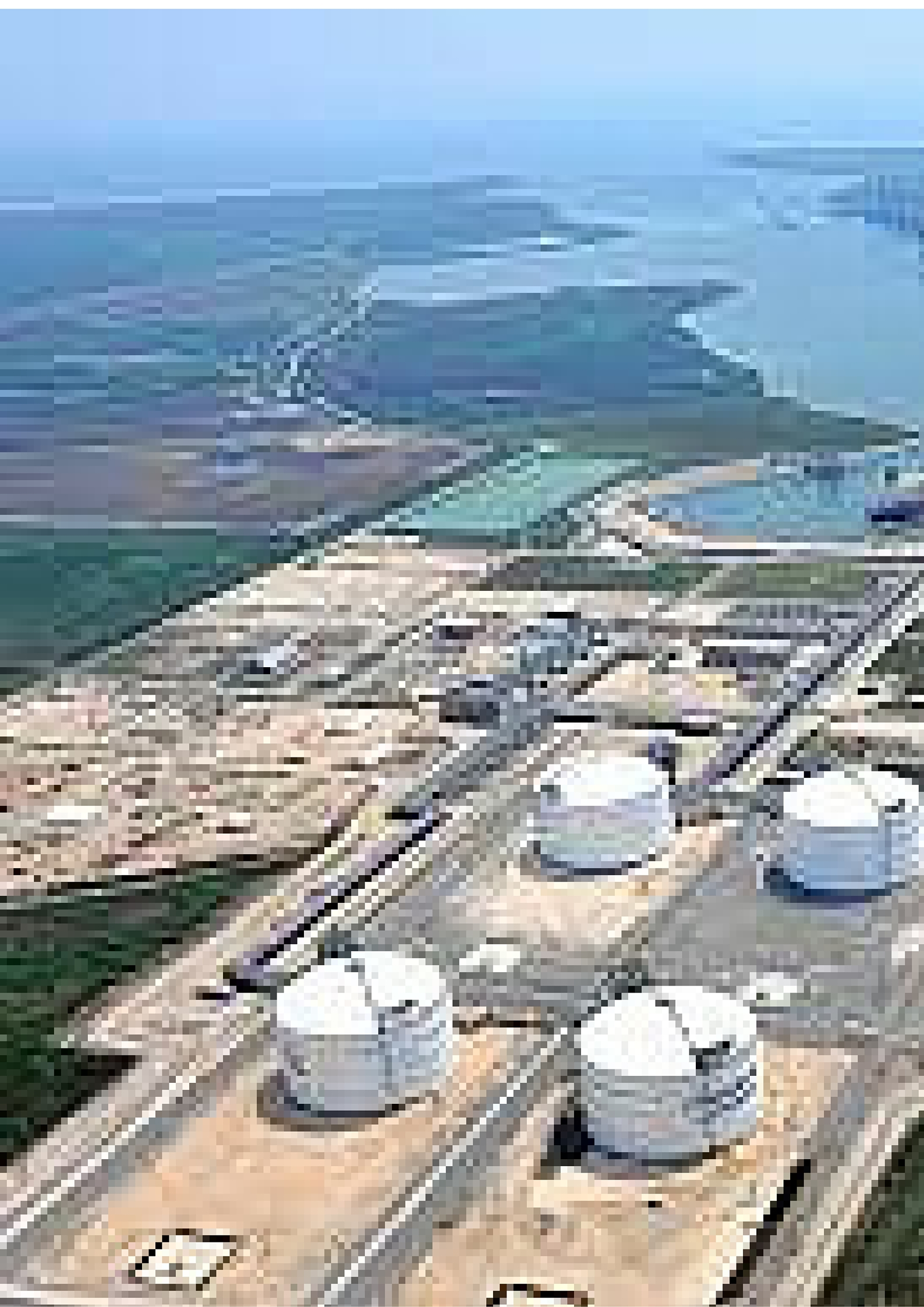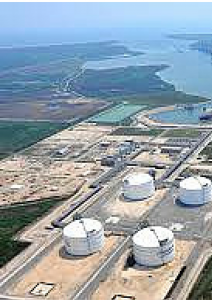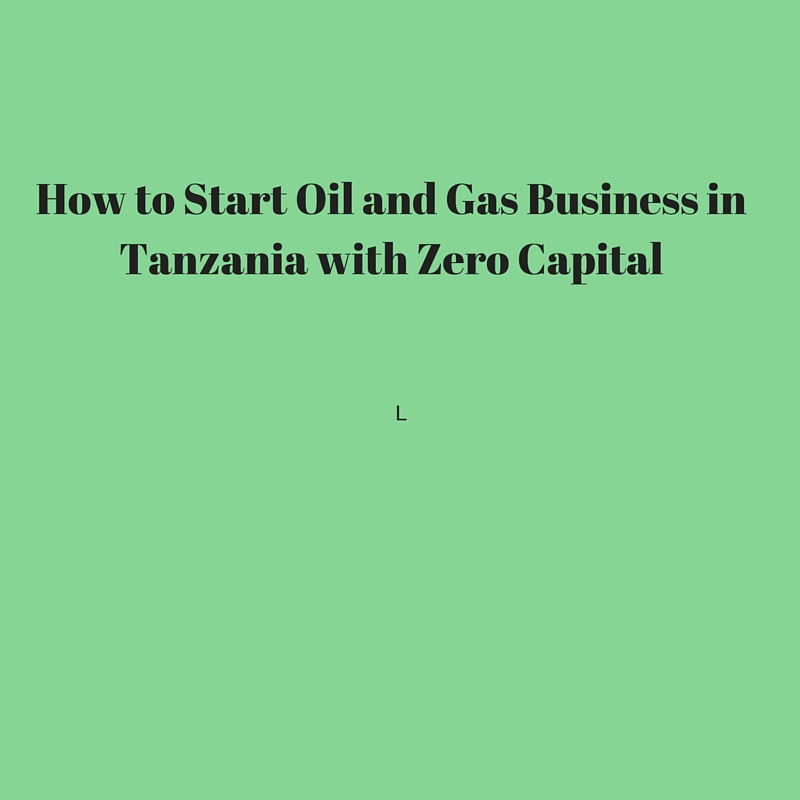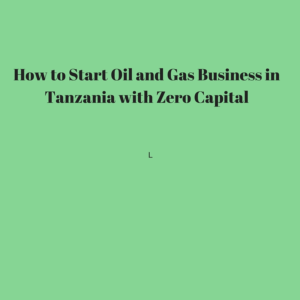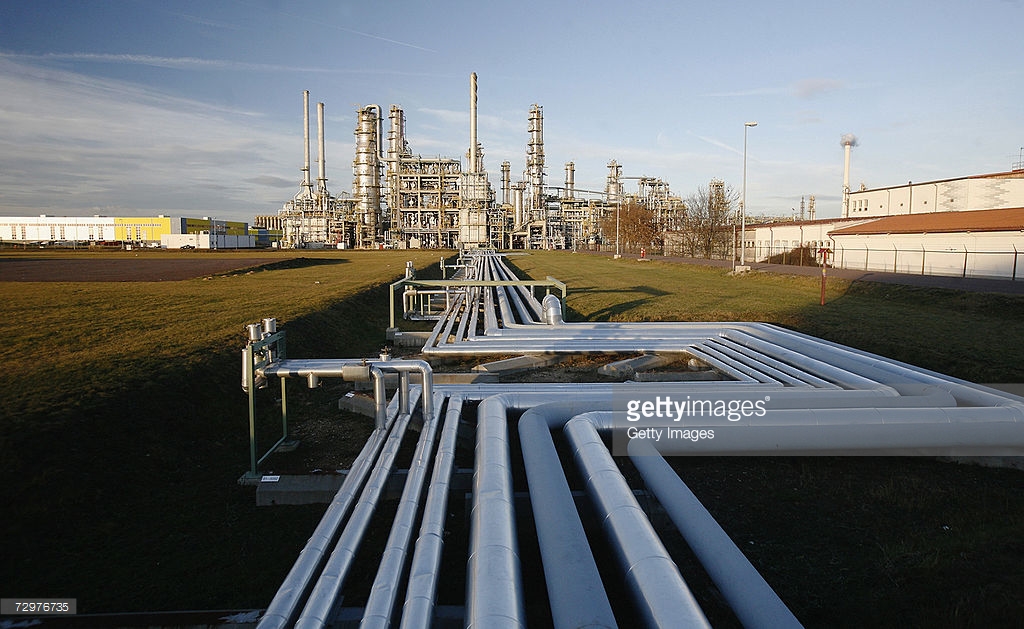
Starting a business is not for the faint of heart, and if you think you’re going to waltz into the lubricant oils industry without doing your homework, you’re in for a rude awakening. But if you’re serious about making money—good money—by selling lubricant oils in Tanzania and Africa, then listen up. This is your no-nonsense guide to getting it done.
Why Lubricant Oils?
First things first: why the hell should you care about lubricant oils? Because it’s a damn good business, that’s why. The automotive industry is booming across Africa, and every vehicle, from motorcycles to heavy-duty trucks, needs lubricant oils.
But it doesn’t stop there. Industrial machinery, generators, and even agricultural equipment—all need lubricants to run smoothly. And guess what? Most people don’t even think about this. They’re too busy chasing after the latest tech startup or the next big thing. But here’s a golden nugget for you: lubricant oils are an evergreen product. That means steady demand, and you know what steady demand means? Steady cash flow.
Know the Market.
Before you even think about starting, you need to understand the market. If you don’t know who you’re selling to, then you’re just another idiot with a dream and no plan. In Tanzania and the broader African market, the lubricant oils sector is divided into two main segments: automotive and industrial.
- Automotive Lubricants:
– Engine Oils: Used in cars, trucks, motorcycles, and buses.
– Transmission Fluids: Essential for smooth gear shifts.
– Brake Fluids: A must-have for any vehicle with hydraulic brake systems.
- Industrial Lubricants:
– Hydraulic Oils: Critical for construction machinery and industrial equipment.
– Gear Oils:Used in heavy machinery across manufacturing sectors.
– Turbine Oils: Necessary for power generation equipment.
Identify Your Target Customers.
Let’s get this straight: everyone isn’t your customer. That’s a rookie mistake. If you try to sell to everyone, you end up selling to no one. Narrow it down. Who really needs what you’re selling? In Tanzania and Africa, your target market should include:
- Automobile Dealerships and Repair Shops:
These folks are always in need of quality lubricants to keep vehicles running. Build strong relationships with them, and they’ll keep coming back.
- Industrial Plants:
Factories and manufacturing plants require industrial lubricants to keep their machinery in top shape. This is a massive market if you play your cards right.
- Logistics and Transport Companies:
With fleets of vehicles, these companies need lubricant oils in bulk. A good deal with one of these can be a game-changer.
- Government and Municipalities:
Don’t overlook government contracts. They have huge fleets of vehicles and machinery. It’s a tough nut to crack, but once you’re in, you’re in for the long haul.
- Retailers and Wholesalers:
These guys are the middlemen. You supply to them, they sell to the end-users. Get a few of these on board, and you’re looking at consistent sales.
Get the Right Suppliers.
If you’re going to sell lubricant oils, you better make damn sure you’ve got a reliable supply chain. A lot of people screw this up by going for the cheapest option. Guess what happens then? You end up with crap products that nobody wants to buy.
Find reputable suppliers who can provide high-quality lubricant oils consistently. In Tanzania and Africa, you might want to look at both local manufacturers and international brands. But remember, reliability is key. If your supplier can’t deliver when you need them to, your business will tank faster than you can say “bankruptcy.”
Legal and Regulatory Compliance.
You can’t just jump into the lubricant oils business without crossing your t’s and dotting your i’s. Every country in Africa has its own set of regulations when it comes to selling oils and lubricants. In Tanzania, for example, the Tanzania Bureau of Standards (TBS) regulates the quality of lubricant oils sold in the market. Make sure you’re compliant with all local regulations, or you’ll find yourself out of business—and maybe even in jail.
Here’s what you need to check off:
- Business License: You need to be a registered business. No license, no business—end of story.
- Product Certification: Your lubricant oils must meet the required standards. Get them tested and certified by the relevant authorities.
- Importation Permits: If you’re bringing in lubricants from outside the country, you need the right permits. Don’t try to sneak anything past customs; it won’t end well.
- Environmental Compliance: Disposal of waste oil is a big deal. If you’re caught contaminating the environment, you’ll face heavy fines and your business reputation will be trashed.
Business Model: How Will You Make Money?
Let’s talk about making money—because that’s the whole point, right? There are a few different ways you can structure your lubricant oils business, depending on your goals, capital, and risk tolerance.
- Distribution:
– Pros: Lower risk, steady income, easy to scale.
– Cons: Lower margins, heavy competition.
– How It Works: You buy in bulk from manufacturers and sell to retailers or end users. Your profit comes from the difference between the buying price and the selling price.
- Wholesale:
– Pros: Higher margins, repeat customers, easier cash flow.
– Cons: Requires more capital, inventory management challenges.
– How It Works: You purchase lubricant oils in large quantities and sell them to smaller retailers or directly to businesses in need. You’ll need a warehouse and a reliable distribution network.
- Retail:
– Pros: Direct customer interaction, better control over pricing.
– Cons: Higher overhead, slower growth.
– How It Works: You open a shop, either online or brick-and-mortar, and sell lubricant oils directly to the end-users. You can also offer related services like oil changes to increase revenue.
- Private Labeling:
– Pros: Brand control, high margins, customer loyalty.
– Cons: Requires significant investment in branding and marketing.
– How It Works: You buy lubricant oils from manufacturers and rebrand them under your own label. This allows you to create a unique brand and potentially charge a premium.
Build a Kick-Ass Team.
You can’t do it all on your own—unless you’re planning on running yourself into the ground. You need a team, and not just any team. You need people who are as serious about this business as you are. Hire people who know the lubricant oils market, understand the technical details, and have a knack for sales.
– Sales Team: These guys need to be go-getters. If they’re not closing deals, they’re useless. Period.
– Logistics and Operations: You need someone who can handle the supply chain like a pro. If the logistics fall apart, so does your business.
– Customer Service: It’s not glamorous, but it’s essential. If your customers can’t reach you when they have a problem, they won’t be customers for long.
– Marketing: Don’t underestimate the power of good marketing. If nobody knows you exist, how are they supposed to buy from you?
Pricing Strategy: Don’t Undersell Yourself.
A lot of people think that the best way to get into a market is by undercutting the competition. They’re wrong. If you start a price war, you’ll just end up shooting yourself in the foot. Price your products according to the value they deliver. If you’re offering high-quality lubricants, you have every right to charge a premium.
That said, don’t be stupid about it. Do your research. Know what your competitors are charging and why. Your pricing should reflect your brand positioning. If you’re the budget option, that’s fine—but own it. If you’re the premium option, make sure your product quality and customer service back it up.
Marketing: Get the Word Out.
Now, let’s talk about marketing. It’s not enough to have a great product. You need people to know about it. Here’s the deal: in Tanzania and Africa, digital marketing is growing, but don’t ignore traditional channels. You need a mix of both to reach your target audience.
- Digital Marketing:
– Social Media: Platforms like Facebook, Instagram, and LinkedIn are great for reaching both B2B and B2C customers.
– Search Engine Optimization (SEO): Make sure your website is optimized for search engines so people can find you when they’re looking for lubricant oils.
– Email Marketing: Build a list of prospects and customers and keep them informed about new products, promotions, and industry news.
- Traditional Marketing:
– Radio and TV Ads: Depending on your target market, radio and TV ads can be highly effective in Africa.
– Billboards and Posters: Don’t underestimate the power of visual advertising in high-traffic areas.
– Networking and Trade Shows: Get out there and meet people. The lubricant oils industry is still very much a relationship-based business.
Distribution Channels: Get Your Product to Market
If people can’t buy your product, they’re not going to buy your product. It’s that simple. You need a solid distribution strategy. Are you going to sell directly to consumers, or are you going to use distributors and wholesalers? Maybe a bit of both? Let’s break it down.
- Direct-to-Consumer (D2C):
– Pros: Complete control over your brand, higher profit margins, direct customer feedback.
– Cons: Requires a robust logistics network, customer acquisition can be costly.
– How It Works: You sell your lubricant oils directly to consumers, either through your own physical store, online platform, or both. This strategy gives you full control over your pricing and branding, but you’ll need to handle all aspects of logistics and customer service.
- Wholesale Distribution:
– Pros: Larger order volumes, access to a broader market, lower marketing costs.
– Cons: Lower margins, less control over end-user pricing.
– How It Works:You sell your lubricant oils in bulk to wholesalers who then distribute them to retailers or directly to businesses. This allows you to move large quantities quickly but requires you to maintain strong relationships with your wholesale partners.
- Retail Partnerships:
– Pros: Increased visibility, established customer base.
– Cons: Margins are shared with retail partners, potential for brand dilution.
– How It Works: Partner with existing retail outlets to sell your lubricants. This could be automotive shops, gas stations, or supermarkets. The benefit here is that these retailers already have an established customer base, which can drive your sales.
- Franchising:
– Pros: Rapid expansion, consistent revenue from franchise fees.
– Cons: Requires a proven business model, significant upfront legal and operational work.
– How It Works: If you’ve built a strong brand and business model, consider franchising. This allows other entrepreneurs to operate under your brand in different regions, with you earning a cut of their revenue. It’s a great way to scale quickly, but you need to ensure your operations are watertight before taking this step.
Customer Retention: Keep Them Coming Back
Getting a customer is hard. Keeping a customer is even harder. If you want to succeed in the lubricant oils business, you need to focus on customer retention. Why? Because repeat customers are the lifeblood of any sustainable business. They’re easier to sell to, they spend more money, and they’re more likely to refer others to you.
- Quality Assurance:
If your product doesn’t perform, your customers won’t come back. Period. Ensure that every batch of lubricant oil meets the highest standards. Invest in quality control and don’t cut corners. In the long run, consistent quality will build trust and loyalty.
- Customer Service:
How you treat your customers matters. If they have a problem, you fix it—fast. Train your customer service team to be responsive, knowledgeable, and solution-oriented. A good experience with your customer service can turn a disgruntled customer into a loyal advocate.
- Loyalty Programs:
Implement a loyalty program to reward repeat customers. Whether it’s discounts, free products, or special deals, giving your customers a reason to stick with you will pay off in spades.
- Education and Support:
Offer your customers more than just a product—offer them knowledge. Create guides, tutorials, and workshops on how to get the most out of your lubricants. This not only adds value to your product but also positions you as an expert in the field, making customers more likely to return to you for advice and purchases.
Financial Management: Keep an Eye on the Numbers
Here’s where a lot of businesses screw up—they don’t keep an eye on their finances. If you’re not managing your money well, your business won’t last. It’s as simple as that.
- Budgeting:
Create a budget and stick to it. Know your fixed and variable costs, and make sure you have enough cash flow to cover them. Don’t blow all your money on fancy offices or unnecessary expenses—focus on what will actually make you money.
- Cash Flow Management:
Lubricant oils are a product that can tie up a lot of your cash in inventory. Be smart about how you manage your cash flow. Consider offering terms to reliable customers while negotiating favorable terms with your suppliers. Always keep enough cash on hand to deal with unexpected expenses.
- Pricing Strategies:
Your pricing needs to cover your costs and generate a profit, but it also needs to be competitive. Regularly review your pricing strategy to ensure you’re not leaving money on the table—or pricing yourself out of the market.
- Financial Reporting:
Keep detailed financial records. Regularly review your profit and loss statements, balance sheets, and cash flow statements. This will help you identify any issues early on and make informed decisions about where to invest, where to cut back, and how to grow.
Growing Your Business: When and How to Expand.
Once your lubricant oils business is up and running, it’s time to think about growth. But don’t rush into expansion without a plan. Here’s how to scale smartly.
- Market Penetration:
Before expanding into new markets, make sure you’ve fully penetrated your existing market. Increase your market share by improving your distribution, enhancing your marketing efforts, and offering new products that meet customer needs.
- Geographic Expansion:
Once you’ve dominated your local market, consider expanding to other regions within Tanzania or even to neighboring countries. This will require a deep understanding of new markets, including regulations, competition, and customer preferences.
- Product Line Expansion:
Diversify your product offerings. If you’re only selling automotive lubricants, consider branching out into industrial lubricants or even specialty products like eco-friendly oils. This not only opens up new revenue streams but also helps you meet the needs of a broader customer base.
- Technology and Innovation:
Stay ahead of the curve by investing in technology and innovation. Whether it’s through improving your manufacturing processes, offering digital services, or developing new lubricant formulas, innovation will help you stay competitive and meet the evolving needs of your customers.
Challenges and Risks: Be Prepared.
Let’s not sugarcoat it—starting a lubricant oils business in Tanzania and Africa comes with its share of challenges and risks. But if you’re prepared, you can overcome them.
- Regulatory Hurdles:
Navigating the regulatory landscape in Africa can be tricky. Stay informed about changes in regulations and be proactive in ensuring compliance. A good relationship with local authorities can also help you avoid unnecessary headaches.
- Competition:
The lubricant oils market is competitive, and you’ll need to differentiate yourself to stand out. Focus on quality, customer service, and brand reputation to set yourself apart from the competition.
- Supply Chain Disruptions:
Inconsistent supply can cripple your business. Mitigate this risk by diversifying your supplier base and building strong relationships with key suppliers. Having a contingency plan in place for disruptions is also critical.
- Economic Fluctuations:
Economic instability can affect demand for lubricant oils. Keep a close eye on economic indicators and be ready to adapt your business strategy to changing conditions. This might involve adjusting your pricing, focusing on more stable customer segments, or diversifying your product line.
Final Thoughts: Get Off Your Ass and Get Started.
Starting a lubricant oils business in Tanzania and Africa isn’t for the lazy or the faint-hearted. It’s going to take hard work, determination, and a lot of grit. But if you follow the steps I’ve laid out, you’ll be well on your way to building a successful and profitable business. Don’t sit around waiting for the perfect moment—because it’ll never come. The perfect time to start is now.
So, what are you waiting for? Get off your ass, get out there, and start making things happen. The lubricant oils market is ripe for the taking, and there’s no reason why you can’t be the one to dominate it. But remember, success doesn’t come to those who wait—it comes to those who go out and grab it with both hands.
Now, go out there and make it happen!

